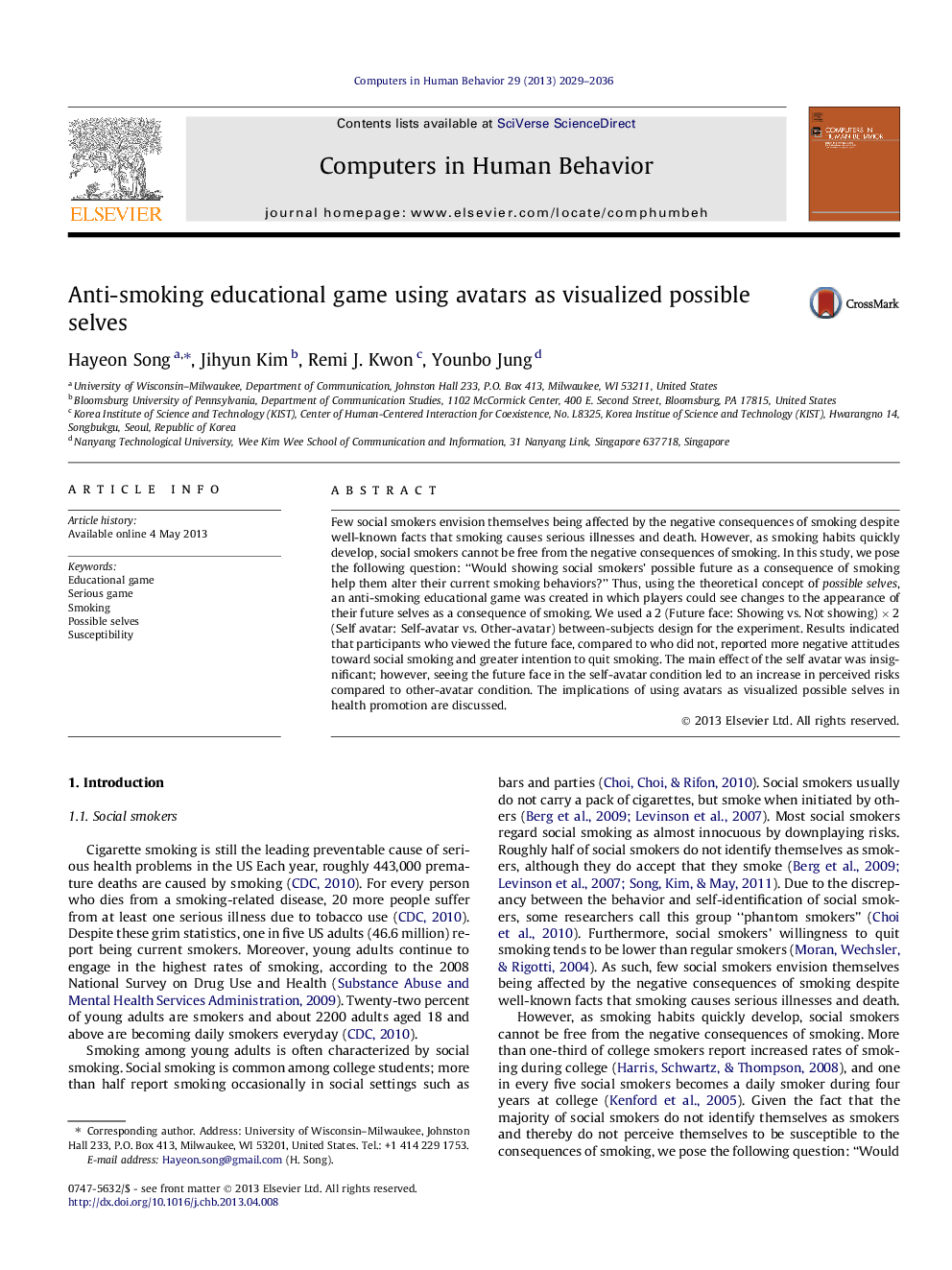| کد مقاله | کد نشریه | سال انتشار | مقاله انگلیسی | نسخه تمام متن |
|---|---|---|---|---|
| 350914 | 618459 | 2013 | 8 صفحه PDF | دانلود رایگان |

• An anti-smoking educational game was created and evaluated.
• An avatar in the game could show future self affected by long years of smoking.
• An avatar with future face made significant changes in smoking related attitudes.
• Seeing one’s own face made insignificant changes in smoking related attitudes.
• In future condition, viewing one’s own face increased perceived risk.
Few social smokers envision themselves being affected by the negative consequences of smoking despite well-known facts that smoking causes serious illnesses and death. However, as smoking habits quickly develop, social smokers cannot be free from the negative consequences of smoking. In this study, we pose the following question: “Would showing social smokers’ possible future as a consequence of smoking help them alter their current smoking behaviors?” Thus, using the theoretical concept of possible selves, an anti-smoking educational game was created in which players could see changes to the appearance of their future selves as a consequence of smoking. We used a 2 (Future face: Showing vs. Not showing) × 2 (Self avatar: Self-avatar vs. Other-avatar) between-subjects design for the experiment. Results indicated that participants who viewed the future face, compared to who did not, reported more negative attitudes toward social smoking and greater intention to quit smoking. The main effect of the self avatar was insignificant; however, seeing the future face in the self-avatar condition led to an increase in perceived risks compared to other-avatar condition. The implications of using avatars as visualized possible selves in health promotion are discussed.
Journal: Computers in Human Behavior - Volume 29, Issue 5, September 2013, Pages 2029–2036